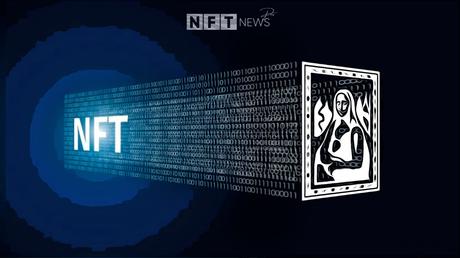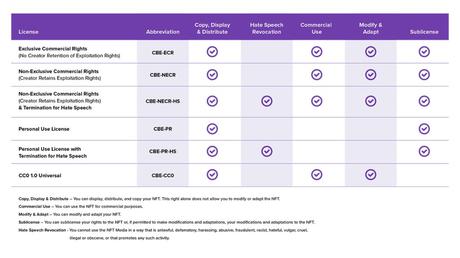
The venture finance company Andreessen Horowitz (a16z) is working to organize the disorganized crypto copyright market. In a series of agreements known as “Can’t Be Evil” licenses, which the business unveiled last week, creators can award non-fungible token owners some or nearly all of the rights to NFT art.
The Creative Commons (CC) copyright structure serves as the foundation for the “Can’t Be Evil” licenses.The licenses offered by a16z, in contrast to Creative Commons, specify the relationship between the buyer of an NFT and the artist of the original work it is related to.
The licenses are intended to provide a very straightforward yet legally valid framework for defining the rights of NFT holders, open to amendment by specific projects, as stated in a blog post.
The most permissive license, which allows anyone to modify or redistribute an artwork, is an exact copy of the CC0 agreement. Beyond that, there are five other categories. The term “Exclusive Commercial Rights” grants the purchaser the sole authority to utilize the artwork as they see fit. Similar things are done by “Non-Exclusive Commercial Rights,” although in this case the artist who created the work also maintains the right to use it. A non-exclusive commercial license is also available, however it can be cancelled if the NFT is used for hate speech, which is defined as defamation, harassment, fraud, or “vulgar, cruel, unlawful, or obscene” purposes.

In addition, there are two “Personal Use” licenses that permit copying and displaying artwork but not commercial use. The hate speech agreement is included in one of these, but not the other. The licenses also address the issue of sublicensing, or, more specifically, how an NFT holder can permit others to use the artwork on items like T-shirts or TV shows and what happens to that agreement if they sell the NFT. According to these licenses, the subcontract is automatically canceled upon a sale, preventing new buyers from purchasing an NFT that is already involved in contracts with other parties.
The agreement also states that copyrights can only be transferred if the NFT is legitimately sold, therefore taking someone else’s token does not provide you all of the rights attached to it.
The copyright licenses are presented by a16z as a more “trustless” form of NFT ownership, and in some ways, this is accurate: rather than relying on handshake agreements and hazy pledges, it may provide more clarity on the tokens’ legal status. The “can’t be evil” slogan frequently implies that there is some technical barrier preventing someone from abusing a system; however, any disagreements over these licenses will be settled through the traditional legal
process, which is a position that many NFT creators seem to be growing more at ease with.
Leave this field empty if you're human: